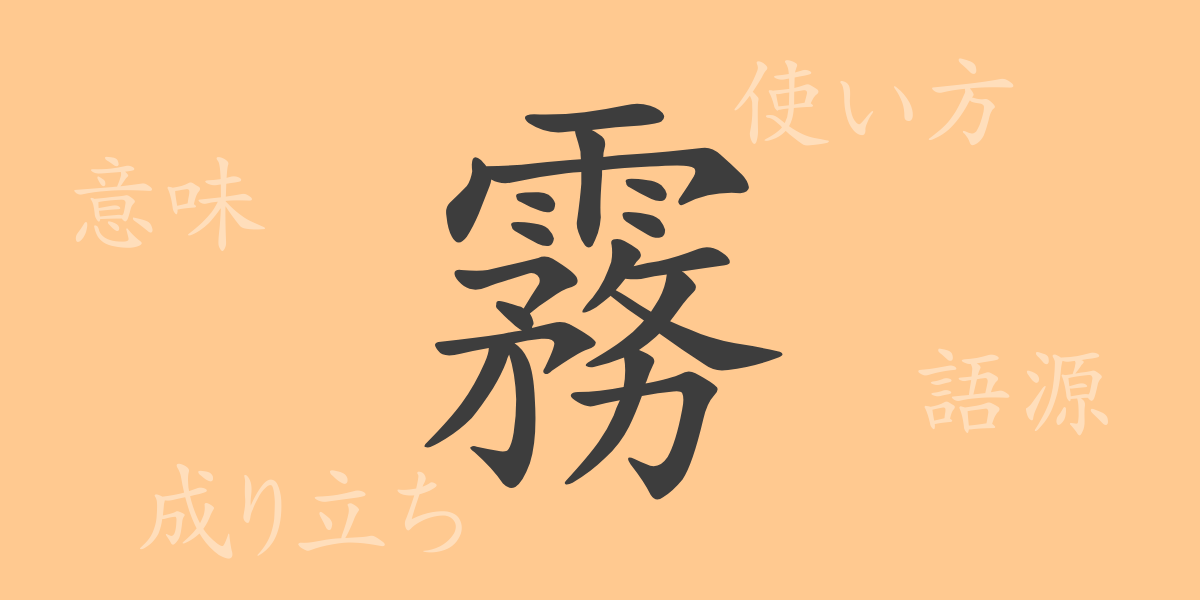On a calm morning, when you look out the window, a fantastical veil woven by nature catches your eye. This is “霧 (kiri)”—one of the natural phenomena that symbolize the Japanese landscape. In this article, we delve into the allure of the commonly used kanji “霧 (kiri),” exploring its origin, meaning, usage, and even idioms and expressions in the Japanese language.
The Origin of 霧 (kiri)
The journey to uncover the origin of “霧 (kiri)” invites us into the depths of Japanese linguistic history. This word, which was even recited in the ancient “Manyoshu,” is a linguistic representation of the wonders of the natural world. The gathering of water droplets floating between heaven and earth was a mystical presence to the ancients, and from their appearance, the word “霧 (kiri)” meaning “mist” was born.
The Meaning and Usage of 霧 (kiri)
The kanji “霧 (kiri)” refers to the phenomenon where fine water droplets float in the air, creating a hazy view. This word is also used metaphorically, as in “walking in the mist,” to describe uncertain or unclear situations.
Reading, Stroke Count, and Radical of 霧 (kiri)
The kanji “霧 (kiri)” has meanings related to clouds and mist, as its shape suggests. Here, we explain its readings and structure in Japanese.
- Reading: On’yomi is “ム (mu),” Kun’yomi is “きり (kiri)”
- Stroke Count: 19 strokes in total
- Radical: 雨部 (あめへん, amehen)
Idioms, Expressions, and Proverbs Using 霧 (kiri) and Their Meanings
In Japanese, there are many idioms, expressions, and proverbs that include “霧 (kiri).” These are used to express Japanese life and emotions, showcasing the depth of the language.
- 霧散霧消 (むさんむしょう, musan mushou): To completely disappear
- 霧中の鶴 (むちゅうのつる, muchuu no tsuru): A metaphor for something elusive
- 煙霧の如し (えんむのごとし, enmu no gotoshi): Describing something unclear
Summary of 霧 (kiri)
“霧 (kiri)” is not just a natural phenomenon; it is a mirror reflecting the sensibilities and beauty of Japanese language. By understanding its readings, meanings, and cultural roles, we can rediscover the richness of the Japanese language and the romance that natural phenomena hold. Misty landscapes bring tranquility and mystery to the observer’s heart, and words have the power to describe this. Through this article, we hope you have felt the multifaceted charm of “霧 (kiri).”

























